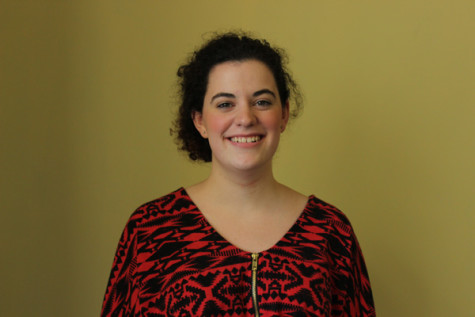Before the April 9 response deadline passed, more faculty spoke up about their strategic plan opinions.
Professors Allan Walstad, John Mullennix and James Alexander sent emails to faculty about their opinions and urging further discussion at a Faculty Senate meeting today.
Walstad said he did not agree with the portion of the plan to increase school spirit through branding. He said that he wants students to have pride in the institution, because of their good education and extra-curricular interests, not because of branding.
“To me, this is embarrassing tripe having no place in a serious planning document for a self-respecting institution of higher learning,” Walstad said.
Walstad also said he was concerned with plan sections that seemed to prioritize other things over students’ education.
Mandatory community service and a Real World Action Program co-curriculum give students another required list to complete outside of their academic studies, he said, draining unnecessarily from their time and focus on academics.
Walstad also said he is concerned about mandatory internships, claiming faculty are best to set requirements for the majors they teach.
“I suggest that where ‘experiential learning’ opportunities or requirements are optimal,” he said, “they are already being implemented, at least to the extent of resources and faculty time.”
Mullennix said he saw good in the plan, but also agreed with many of Walstad’s points.
Mullennix said he noticed Pitt-Johnstown becoming increasingly more focused on professional programs, which could become a problem if it begins to interfere with the liberal arts side of students’ education.
He also pointed out how faculty are rarely mentioned in the document, saying faculty should be helped to continue their education and research.
Mullennix also suggested more effort should be added to helping international students adjust so they will want to stay.
He warns against interdisciplinary courses, mandatory internships and community service. Interdisciplinary sounds nice, he said, but classes should only be initiated if they can give students something they cannot gain through disciplinary classes.
Mandatory internships, he said, could place a large strain on faculty to help every student find an internship. Required community service may lead to students feeling forced into service, and our small community may not have enough service opportunities for all students.
His last point was to rephrase asking faculty and staff to contribute money to the university.
“One last minor item, in terms of a goal of ‘100 (percent) contribution’ to the Capital Campaign, that statement implies coercion,” he said. He said it should be rewritten to sound more like a suggestion and less like being forced.
Alexander said he was skeptical of some plan goals.
“Some of the aspirations require commitment of real money which is already in short supply and the university is unlikely to give us more, raising the question of why aspire to that which you cannot fund,” he said.
University president Jem Spectar responded to concerns. Spectar sent an email with a revised plan and change explanations.
Spectar said the plan was changed to support faculty and to publicize their accomplishments, and clarified that faculty donating to the university is voluntary.
Spectar also addressed the interpretation that the Humanities and Social Sciences divisions would be combined into one Arts and Letters division. He said it was only intended for consideration, and that plan portion has been deleted.
Spectar also said mandatory internships and community service has been deleted, and eliminated specifics on admitted students’ SAT score goals.
Spectar said a town meeting would be held 3 to 5 p.m. Tuesday in Heritage Hall for questions.

